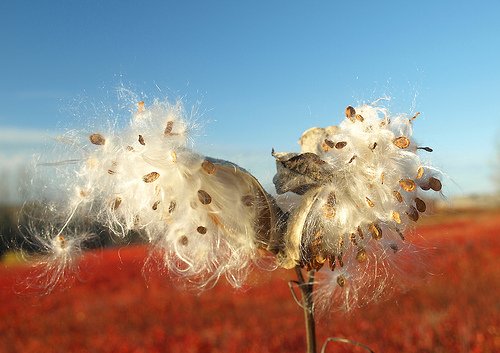Discovering the outside world is one of my twin toddlers’ favorite activities. Our daily walk around the block can take five times longer than I think it should because they want to stop and look and touch pretty much everything in their path.
 |
|
Milkweed in fall. Photo by Brandon Keim, licensed under Creative Commons 2.0. |
September 24-30 is Take A Child Outside Week, a program designed to help children discover the natural world. Check out the national campaign website for a wonderful list of outside activities for all ages, from making nature bracelets to a nature scavenger hunt.
Remember that some plants can be harmful if you touch them, eat them or burn them. Sometimes, the whole plant is harmful, but other times just part of the plant is harmful. Some potentially harmful plants you may find while walking outside in New England this fall are poison ivy, poison sumac and common milkweed. If you eat or touch a harmful plan you may:
- Get a rash
- Feel sick to your stomach
- Feel dizzy
- Feel like your heart is beating too quickly or too slowly
- Have trouble breathing
If you think someone has eaten, touched or burned a plant that might be harmful and they are having any of the above symptoms, call the poison center at 1-800-222-1222 or chat now. Learn more about first aid for poisonous plants.
Prevent plant poisonings by closely watching your children and teaching them to ask before touching or eating plants, berries or mushrooms.




